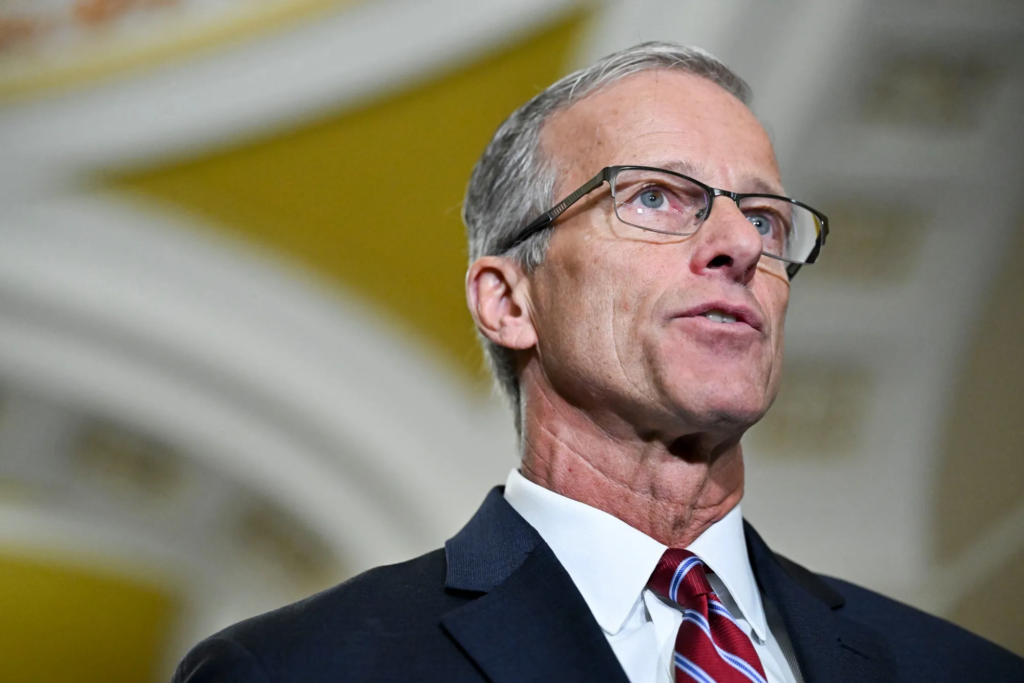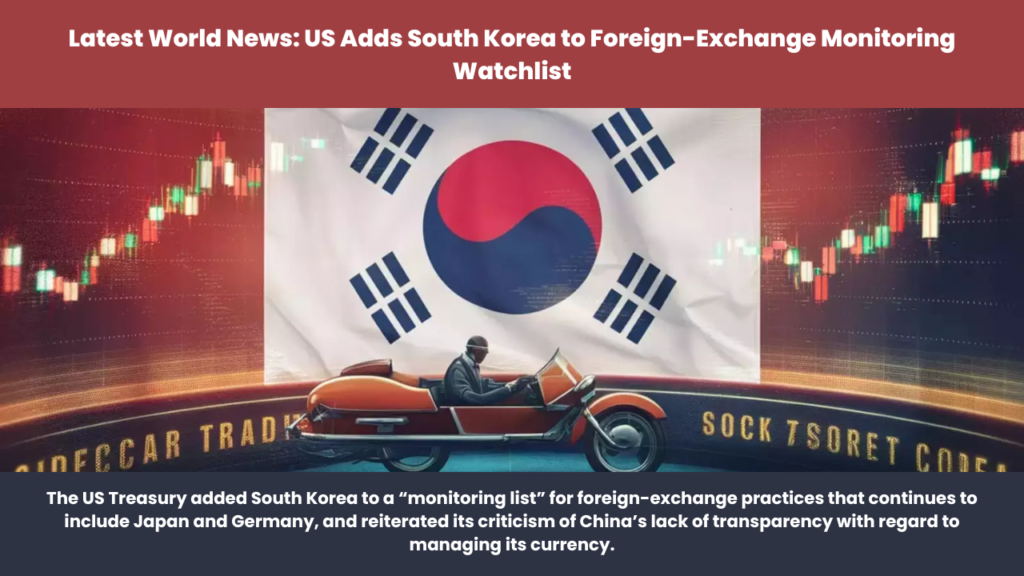The US Treasury added South Korea to a “monitoring list” for foreign-exchange practices that continues to include Japan and Germany, and reiterated its criticism of China’s lack of transparency with regard to managing its currency.

In its semiannual foreign-exchange report released Thursday, the Treasury Department also concluded that “no major US trading partner manipulated the rate of exchange between its currency and the US dollar for purposes of preventing effective balance of payments adjustments or gaining unfair competitive advantage in international trade.”
The last time the Treasury designated a country as a manipulator was in 2019, under then-President Donald Trump, when it slapped the label on China. The tag was dropped five months later as a bilateral trade deal was negotiated. Thursday’s is the last report under the Biden administration.

The economies on the Treasury’s monitoring list were mostly unchanged from the previous release in June, and include China, Korea, Japan, Germany, Singapore, Taiwan and Vietnam. Malaysia, which was included in June’s report, was dropped in the latest one.

When a trading partner meets two of three criteria under a 2015 law, it’s placed on the monitoring list for “enhanced analysis.”
South Korea was added after meeting two of the criteria, with a significant global current-account surplus and its bilateral surplus with the US, a Treasury official said.
Thursday’s report covers the four quarters through June 2024. More recently, the dollar has been climbing amid rising doubts about how low the Federal Reserve will take its benchmark interest rate next year. Expectations for faster inflation under Trump, thanks in part to tariff increases, have added further impulse to the greenback this month.
That appreciation has put major strains on net importers of dollar-priced commodities such as oil, as well as on those countries bearing dollar-denominated debt.

While the congressionally mandated report is designed to pressure trading partners perceived to be artificially holding down their exchange rates for competitive advantage, the strong dollar has meant that interventions around the world lately have been designed to prop up local currencies.
The Treasury reiterated its call for greater transparency in how Beijing conducts its exchange-rate policy. “China’s failure to publish foreign exchange intervention and broader lack of transparency around key features of its exchange rate policy make China an outlier among major economies and warrant Treasury’s close monitoring,” the department said.

A manipulator designation has no specific or immediate consequence, but the law requires the administration to engage with those trading partners to address the perceived exchange-rate imbalance. Penalties, including exclusion from US government contracts, could be applied after a year if the label remains.
This article was generated from an automated news agency feed without modifications to text.


